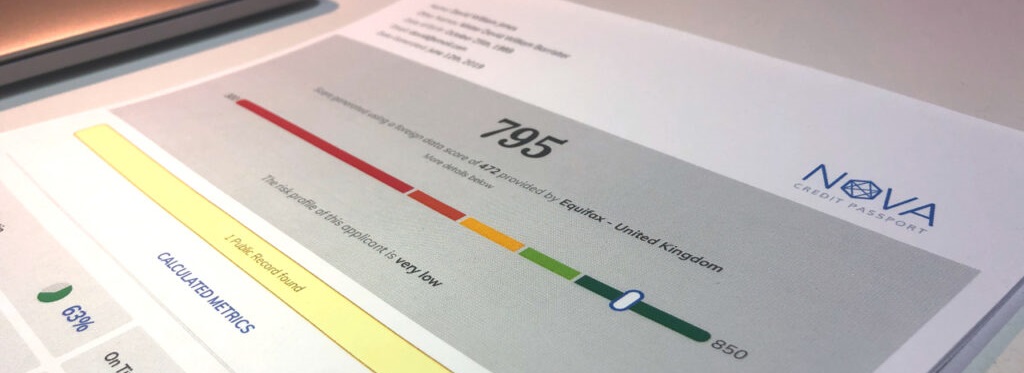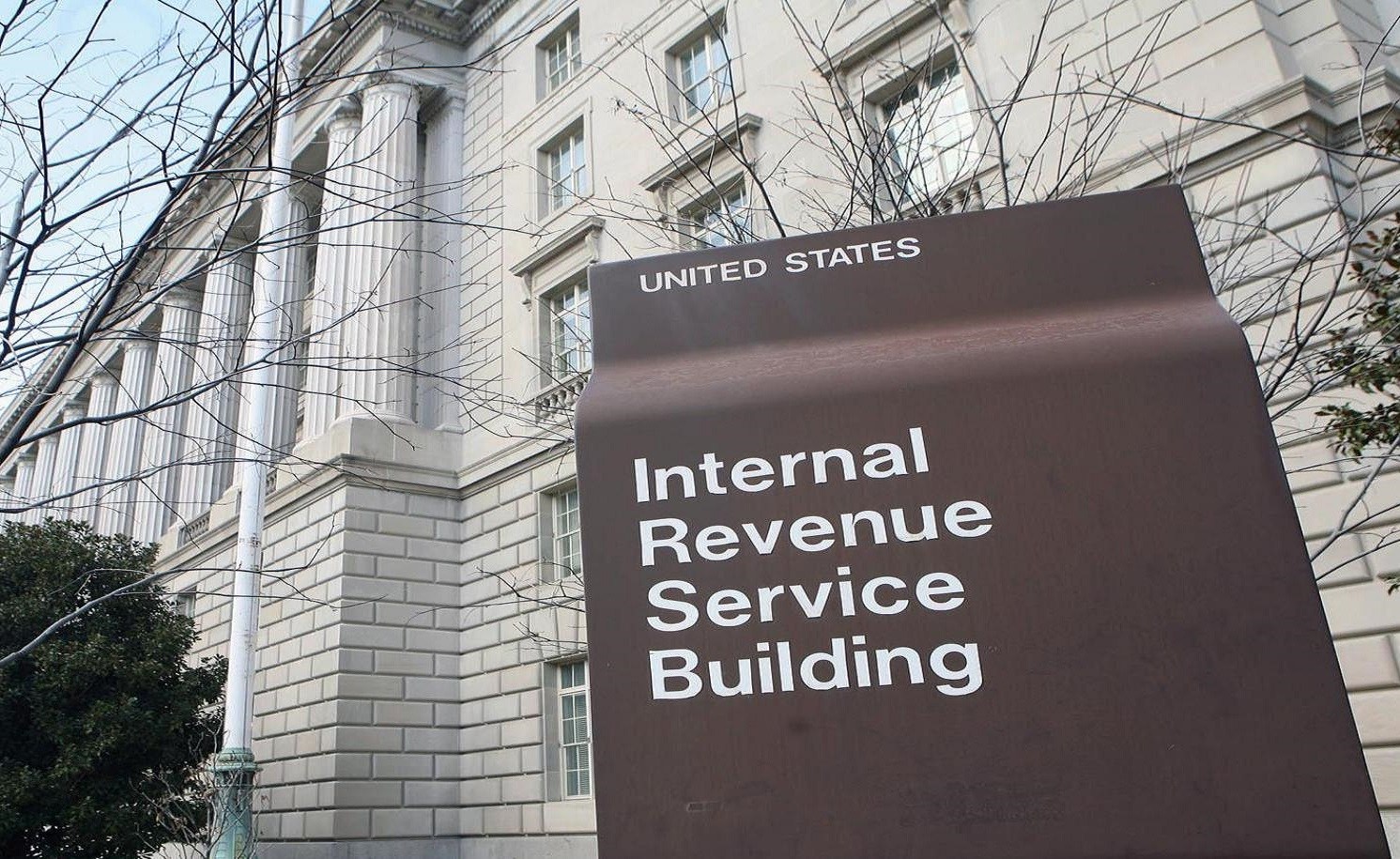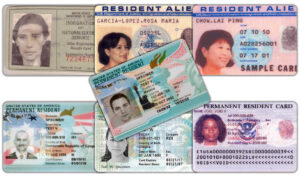
If you’ve just relocated to the United States, your financial history gets a fresh start too. For some, that might be a good thing. Unfortunately, it makes getting established very challenging. Immigrants with no credit history in the U.S. may find it difficult to rent an apartment, buy a car, or even get a cell phone plan. It’s necessary to build a credit history before you can make any major purchases that require a loan.
Even if you had an excellent credit history in a previous country, that record generally does not transfer to the United States. U.S. credit reports only contain information on U.S. lenders and creditors. Some lenders may be willing to use your previous credit. However, with a little work immigrants with no credit can establish good credit in just a few months.
Credit Overview for Immigrants
If you’re not already familiar with the concept of credit and credit scores, it’s fairly simple. Most people require a loan to purchase a home, buy/lease a car, or make many major purchases. But credit is even extended if you have a phone plan. The lenders that give you the money to buy a car or extend you the credit to make phone calls want to know that they will be paid back on time. Building credit is simply building positive payment history. A good credit score is a good report on your payment history. It tells future lenders that you have a good record of paying back money on time.
There are three major U.S. credit bureaus — Equifax, Experian and TransUnion – that collect credit information. When you apply for and get credit, the lender reports the existence of the account and the activity to the credit bureaus. The credit bureaus develop a credit file for each individual that shows which accounts you have, how much you owe, and whether you pay your bills on time. They distill this information into an easy-to-read number, a credit score.
Credit Scores
Credit scores have a range between 300 and 850, and a credit score of 700 or above is generally considered good. The most common type of credit score is called a FICO score. Lenders are generally going to provide better rates to borrowers with good credit scores. Those without any credit score – like new immigrants – may have difficulty obtaining some loans because of this lack of history.

Difference Between Bad Credit and Immigrants with No Credit
Having a bad credit score is very different than having no credit. If you have no credit history, lenders don’t have any information. On the other hand, bad credit is generally the result of late payments, inadequate payments or no payments at all. Bad credit may take many years to repair. But no credit can be resolved by building credit. In some cases, certain lenders can make loans to immigrants with no credit history.
How to Transfer Credit History from Your Home Country to the U.S.
Building a good credit score in America takes time. In fact, it can take years! It is absolutely achievable through diligent effort, but this is not ideal if you need certain loans right away and have recently moved to the U.S.
There is possibly another option: if you are new to the U.S. and want to apply for financial products, you may be able to transfer your credit history from your previous country of residence using Nova Credit. Nova Credit is plugged into the top global consumer credit bureaus to bring your credit to the U.S for use by American lenders, property rental companies, and others. Essentially, Nova Credit moves credit reports from countries like Mexico, India, Australia, United Kingdom and others into equivalent reports for U.S. lenders. That allows you to use your international credit file to apply for U.S. loans, apartments, and more.

Getting started is easy. You can simply visit the Nova marketplace to see potential options for student loans, car loans, apartment rentals and more.
5 Tips for Immigrants that Want to Build Credit
By diligently taking small steps to build a positive history, most immigrants with no credit can establish good credit within a few months. Because a credit history is built over time, some patience is necessary. Start today and maintain good habits.
Apply for a Social Security Number
A Social Security number, commonly called an SSN, is a unique, nine-digit code assigned to Americans to track earnings and benefits. The Social Security Administration issues the SSN. Generally, you need an SSN to get a job, collect Social Security benefits and gain access to some other government services. Banks and credit card companies may also ask for your SSN when you apply for a new credit card, as it helps them verify that you are who you say you are.
In most cases, only immigrants authorized for employment in the U.S. can obtain a Social Security number. If you are not eligible for an SSN, you may request an individual taxpayer identification number (ITIN). An ITIN can substitute for an SSN until you get one. There are several credit card companies and loan originators that accept ITINs.
Open a Secured Credit Card
Since you have little or no credit history to this point, opening a standard line of credit will be difficult or impossible. However, banks and other lenders generally consider you a risk simply because they don’t know anything about you. You can mitigate this risk by offering collateral. With a secured credit card, you make a deposit and the credit card company typically issues a card with a spending limit equal to the deposit. In effect, you are borrowing your own money. However, in the process, you are building a credit history. If you use it responsible, you’ll establish a positive credit report and credit score. Several major card companies offer secured credit cards.
Apply for a Credit-Builder Loan
A credit-builder loan is another great way to develop positive credit history. The lender deposits a small amount of money into a secured savings account on your behalf. It’s a loan that stays deposited in your savings account. Then, you pay off the loan in monthly payments. After the loan is paid in full, the money in the savings account is yours to use as you please. You’ve grown your personal savings and established your credit.
The credit-builder loan isn’t used for making a purchase right away. Think of it as a savings account that is also helping your build credit. It’s important to know that you will pay an interest rate, but it does foster good saving habits. Most credit-builder loans are small, perhaps $300 to $1,000. This means that you’ll have small monthly payments. They are also generally easy to qualify for.
Use Your Accounts Responsibly
Once you set up an account or two, establish good habits and demonstrate that you are a reliable and trustworthy borrower.
Make Timely Payments
Pay your bills on-time. This also goes for rent and utility bills. If you are late and have unpaid balances, these companies will often share your payment history with the credit agencies. Unpaid bills can be sold to a collection agency which will be detrimental to your credit score. If you have obtained a credit card, most companies have an app or way to automatically set up your payments so that they get paid on-time, even if you forget.
Use Credit Conservatively
Don’t use too much credit. Instead, keep your credit utilization low. Credit utilization is how much of your credit limit that you use each month. Many credit experts recommend maintaining credit utilization at 30% of less of your total credit limit. You want to use it, but don’t abuse it. Pay your balance in full each month. If you want to use your card more often, you can pay it off multiple times during the month. For example, if your credit limit is $300, try to keep your total charges below $100. If you’d like to use the card before the next billing cycle, pay the $100 before you charge any more.
Maintain Accounts
Another portion of the credit score criteria is account age. Therefore, keep your accounts open for as long as possible. Eventually you’ll need to open another account to continue building credit, buy/lease a car, or something else. Each new account lowers your average account age. Since having a longer credit history is better for your credit score, avoid opening too many accounts at once.
Monitor Your Credit Score and Credit Report
Many website and credit card companies will allow you to check your credit score for free. You can check your score as much as you want. However, credit reports contain your history. Again, each of the three major credit bureaus will typically maintain a credit report for you. You are able to obtain a copy of your credit report from each of these agencies once a year for free. By monitoring these reports, you can check for any discrepancies that may be negatively affecting your credit score. Order online from annualcreditreport.com or call 1-877-322-8228.
How Long It Takes an Immigrant to Build Credit
It can take immigrants with no credit several months to build a positive credit report. Generally, it takes at least three months and probably six months of activity before a credit score can be calculated. Many immigrants are able to develop a good score within a year. By continuing to maintain accounts and use them responsibly, your credit score will grow over the next few years.

How to Transfer Credit History from an ITIN
If you had an Individual Taxpayer Identification Number (ITIN) and have already rescinded its use after getting your new Social Security number, you’ll also want to transfer your credit history. Your credit history is not automatically transferred from your ITIN to your SSN. You’ll need to contact all three credit bureaus and request them to transfer your credit history.
Write a Letter to All Three Credit Bureaus
Write the three main credit reporting agencies and ask them to transfer your credit history to your new SSN. Your letter should explain that you have a new SSN and would like to transfer your credit history from your ITIN to your SSN. Download a template here. The letter should be sent to:
Equifax Information Services
P.O. Box 740241
Atlanta, GA 30374
Experian
P.O. Box 2002
Allen, TX 75013
Trans Union Corp
P.O. Box 1000
Chester, PA 19022
Be sure to include a copy of your ITIN, Social Security card, Employment Authorization Card (work permit) or green card, and a recent utility bill or bank statement with your name and current address (or state ID/driver's license if you have one). This will help to establish your identity and facilitate the transfer.
Check Your Free Credit Reports
The credit agencies should send you a confirmation that they made the changes within 2 to 4 weeks. However, if they respond with questions or requests for additional information, respond to them completely and promptly. After you receive confirmations that your credit history has been transferred by each agency, you should check your credit reports to confirm that all three credit reporting agencies have made the changes. You are entitled by federal law to a free credit report every twelve months. Access your free credit report at www.annualcreditreport.com.
Provide Your SSN to Creditors
Provide your new SSN to financial institutions that you use and ask that your new SSN be applied to your accounts. For bank accounts, you should be able to make the change at your local branch. For credit card companies, call the customer service line to ask about the process.
Ways to Get a Loan with No U.S. Credit History
Most big banks aren’t interested in making personal loans to people with no U.S. credit history. Fortunately, there are several alternatives for obtaining a personal loan. Many immigrants with no U.S. credit history can find loans from $1,000 to $30,000 with reasonable annual percentage rates. In many cases and depending on the lender, funds can be disbursed in as little as one day.
Join a Credit Union
Credit unions are nonprofit financial institutions. They tend to be less focused on profit and more focused on serving customers. That’s because credit union customers are also owners. To obtain a loan from a credit union, you typically must join. You may even need to make a small savings deposit.
Generally, it’s easier to get approved for a loan through a credit union. There tends to be more personal interaction. Thus, a credit union representative will consider you instead of just your credit profile. However, credit unions don’t always have the most competitive rates on personal loans. Find a credit union in your area.
Use a Cosigner
A cosigner is generally a person who signs the loan papers with you and agrees to be responsible for any unpaid debt. If you fail to repay the loan, the lender can go after the cosigner for the unpaid portion. Typically, cosigners are close friends or family members who trust you to pay back the entire loan.
In some unique cases, an employer may also be willing to act as a cosigner. In the case of H-1B visa holders, the employer is already sponsoring the visa. Thus, the employer has a vested interest in the success of their employee.
Borrow from a Friend or Family Member
Getting a personal loan from a friend or family member is perhaps the simplest way to get money. There are no credit scores or loan documents to sign. But not everyone has friends and family that are willing to loan cash. For those that do, personal loans from friends and family comes with risks. Misunderstandings or an inability to repay the loan could result in damaged relationships. What's more, borrowing outside the financial system won't build your credit.
Use a Peer-to-Peer Lender
Peer-to-peer lending, also known as crowdlending, is the practice of lending money to individuals or businesses through online services that match lenders with borrowers. The interest rates can be set by lenders who compete for the lowest rate on the reverse auction model or fixed by the intermediary company on the basis of an analysis of the borrower's credit. As a result, rates for loans can often be lower than other options. Examples of online services that will match you with a lender include LendingClub and Prosper.
Payday Loans and Title Loans
Many people looking for a personal loan that have no credit history turn to payday loans or title loans. Both offer “fast cash” but can be costly decisions that aren’t good for your long-term financial health. For this reason, these companies are often referred to a predatory lenders.
Payday Loans
These loan companies provide short-term loans at a very high cost. The loans come with high fees that can keep many borrowers trapped in a repayment cycle that never seems to end. Payday loan companies require that you commit to a repayment that includes a fee. If you can’t repay the loan when it comes due, you will be hit with additional fees and very high annual percentage rates (around 400%).
Title Loans
Title loan shops are all over the place. They require you to use your car as collateral for a short-term loan. Typically, you must own your car to qualify for this loan. Again, the annual percent rate and fees get extraordinarily high, especially if you’re late on the payment. It’s quick cash, but it’s also a quick way to lose your car.
Protect Your Personal Information
Only share your Social Security number and personally identifiable information with those that really need it. Banks and lending institutions generally need this number. However, in the hands of a malicious operator, your personally identifiable information can be used to open other accounts that you don’t know about. The damage caused by identity theft can ruin your credit and leave your good name tarnished with creditors for years.
About CitizenPath
CitizenPath provides simple, affordable, step-by-step guidance through USCIS immigration applications. Individuals, attorneys and non-profits use the service on desktop or mobile device to prepare immigration forms accurately, avoiding costly delays. CitizenPath allows users to try the service for free and provides a 100% money-back guarantee that USCIS will approve the application or petition. We provide support for the Adjustment of Status Application (Form I-485), Immigrant Visa Petition Package (Form I-130), and several other immigration services.
Want more immigration tips and how-to information for your family?
Sign up for CitizenPath’s FREE immigration newsletter and
SAVE 10%
on our immigration services






